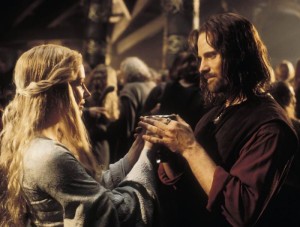 In this two-part feature, Norse mythologist Dr Karl Seigfried writes about Éowyn as an exemplar of Nordic literary tradition and a feminist icon. It’s interesting stuff.
In this two-part feature, Norse mythologist Dr Karl Seigfried writes about Éowyn as an exemplar of Nordic literary tradition and a feminist icon. It’s interesting stuff.
TOLKIEN’S deep love for the literary heritage of northern Europe can be felt throughout his works. I teach a semester-long course teasing out the many elements of Norse myth that permeate The Hobbit alone. In this article, I will focus on a close reading of a single bit of dialogue in The Lord of the Rings to show how powerfully the pre-Christian philosophy resonates in Tolkien’s fantasy.
In “The Passing of the Grey Company”, the second chapter of The Return of the King, Aragorn tells Éowyn that she may not ride with him to battle, but must remain behind as the men go off to war. Her response immediately shows her allegiance to heathen ideals.
‘You are a stern lord and resolute,’ she said; ‘and thus do men win renown.’ She paused. ‘Lord.’ she said, ‘if you must go, then let me ride in your following. For I am weary of skulking in the hills, and wish to face peril and battle.’
Éowyn’s words echo those of the god Odin in the Old Norse poem Hávamál (“Sayings of the High One”):
the self must also die;
but glory never dies,
for the man who is able to achieve it.


